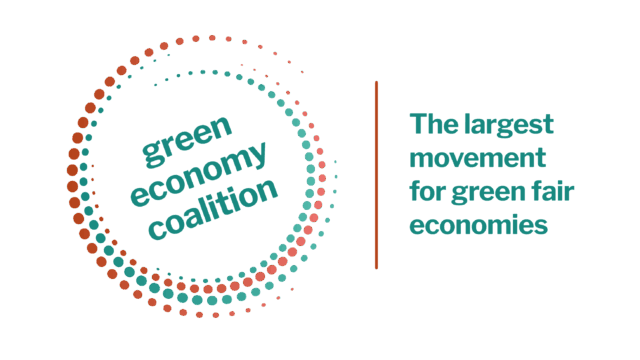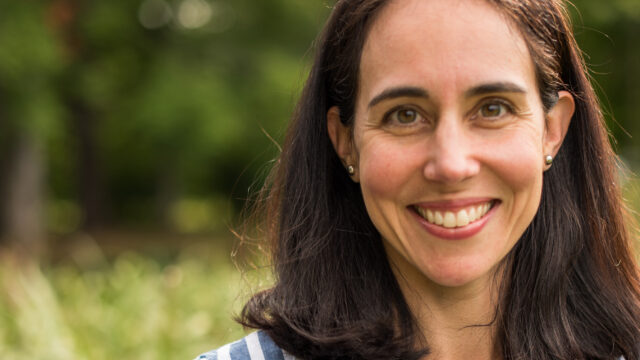There are two parallel conversations going on around the globe. One is focused on the current symptoms of the global problems that we face today, and the other is focused on the causes and the solutions to those same problems. Mexico assumed presidency of the G20 and announced an agenda focused on economic stabilization and structural reform as the foundation for growth and employment; leaders have just come to the end of an EU summit focused on growth and job creation; and the world’s political and economic elite met at Davos to discuss ‘The Great Transformation’ with sessions on rethinking capitalism and reducing inequality.
On another side of the world, the first negotiating text for Rio 2012 was released, called ‘The future we want’, which describes the changes required to catalyse transformation at the international level (see our reaction); and the Global Sustainability Panel (GSP) launched its excellent report ‘Resilient people, Resilient planet: a future worth choosing' (read our initial response) with fifty-six clear ideas on how to create a resilient and sustainable future.
It appears that the very questions being posed by the political-economic world are already being answered by those involved in the sustainability debate. It feels distinctly like the left hand does not know what the right hand is doing. At what point will these two worlds finally come together?
The GSP report, which is a genuinely ambitious and impressive document (see our initial reaction), offers one response to this question: “For too long, economists, social activists and environmental scientists have simply talked past each other. The time has come to unify the disciplines, to develop a common language. That way, politicians and policymakers will find [sustainable development] much harder to ignore.”
It is this quest for a common language that governs the heart of our work as a Coalition. And, as any linguist will tell you, the secret to learning a new language is to ensure that you have the core grammatical building blocks in place. One of those building blocks is a common unit of measurement against which to measure progress, as stated by the GSP Report: “international agencies, national Governments and private corporations [are] to report on their annual sustainable development performance against agreed sustainability measures.”
Metrics feature very prominently in the first negotiating draft for Rio+20. First, there is a call for Sustainable Development Goals, which above all is a call to articulate a shared narrative and shared targets at a global scale. However, global goals will not be enough. Economic policy and power is still mostly dominant in national and corporate settings. So the call for additional metrics at the national level, GDP+, offers the potential to make sustainable development relevant to national policy making, and corporate reporting vital to shape the private sector activities.
This is why the Green Economy Coalition is launching its focus on ‘Measure What Matters’ as our first theme of change. Our proposition is that all of these measurement activities at the corporate, national and global scale are important but the agenda will only be transformative if we consider them together. Only then can we shape our economic priorities and unleash the creative forces that can build a resilient economy that provides a better quality of life for all within the ecological limits of the planet.
In this month’s newsletter we showcase some of the measure what matters innovations that are helping to create a new and shared language amongst many different disciplines. We encourage you to help build this common language and to reach out and engage the political-economic elite. But perhaps, only when heads of government and corporations are queuing up to attend Rio as theydid in Davos will we be sure to have the right people in the room to build the future we want.
- Oliver Greenfield, Convenor, Green Economy Coalition
“ How can a green economy improve the lives of the poorest? How can we have economic growth within environmental limits? How will we fund the transition?”
Measuring What Matters
In today's world, what is not measured is not done. The good news is that progress towards transforming the measurement of environmental and societal wellbeing is happening around the globe. In our Know How section this month, Mark Robertson from EIRIS, which is one of the leading providers of research into environmental, social, governance and ethical performance, explains how stock exchanges are becoming agents of change in the green economy agenda. Teresa Fogleberg from our coalition member, GRI, gives us the rationale behind their campaign for Rio 2012 which we are actively supporting: Report or Explain. Rachel Brown, WWF, takes a look at the practical dimensions of measuring what matters involving a range of different indicators in order to measure human pressure on the planet in different European countries.
Metrics are high on the agenda wherever we look. More importantly, it is generating political momentum. If we can link all of the different conversations and initiatives then we think this could be a transformative agenda.
So, we are hosting a dialogue on Measuring What Matters on 15 February, London, in which we will be gathering experts from all three of these different spheres to find out the latest on each of these agenda items. Spaces are limited so do get in touch if you would like to attend.
The Green Economy Coalition will also be taking part in 'Beyond GDP - How can we measure progress' on 22nd February as part of the Earth Debate series hosted by the Natural History Museum, Stakeholder Forum, the British Council and chaired by the BBC in the lead up to Rio 2012.
- The Brazilian government announced that over thirty Heads of State have now confirmed that they will be attending Rio 2012 in June. The momentum is building.
- The first round of negotiations on the Rio 2012 draft happened last week in New York. Governments negotiated the first two sections of the draft. The sections relating to a green economy and sustainable governance have yet to be negotiated. However, already, the section on corporate reporting has prompted some opposing responses: Canada, the USA and Australia are against any form of mandatory reporting, while the G77 and Switzerland are supporting the proposition. Member states now have until 22nd February to submit their response to the next phase of negotiations in time for the March meeting in New York. We will keep you updated on the developments as they unravel.
- The concept of Sustainable Develpoment Goals (SDGs) is gathering political momentum. Colombia and Guatemala, amongst others, are leading on the debate. A government retreat was hosted during last week's meeting to discuss possible themes for the SDGs including sustainable nutrition for all; safe cities; sustainable consumption and production; sustainable energy for all; and jobs.
- A new analysis on the UNCSD submissions undertaken by Stakeholder Forum is a useful tool for finding out how different governments are positioned on different themes and proposals ahead of Rio 2012. You may also find our analysis a useful guide to some of the big themes for the conference.
- Twenty-five years on from the Brundtland Report the Global Sustainability Panel report is now out. It is an impressive and visionary piece (see our reaction). Over the coming months the Report will be launched in different cities around the world, including an event in London at the end of February. We will keep you updated on progress.
Talking Green Economy
We recognise that the transition to a green and fair economy is not the job for a single organisation or sector or government. It is going to require expertise from across the globe. So, over the last few months we have been catching up with some of the leading thinkers around the world and asking them the big and difficult questions: How can a green economy improve the lives of the poorest? How can we have economic growth within environmental limits? How will we fund the transition?
To launch our series of Talking Green Economy we sit down with Johan Rockstrom from the Stockholm Resilience Centre and lead scientist on the concept of planetary boundaries. He gives us an exclusive insight into his hopes for Rio+20 and answers some tricky questions on the relationship between growth, equity and environmental limits. Watch it here.


